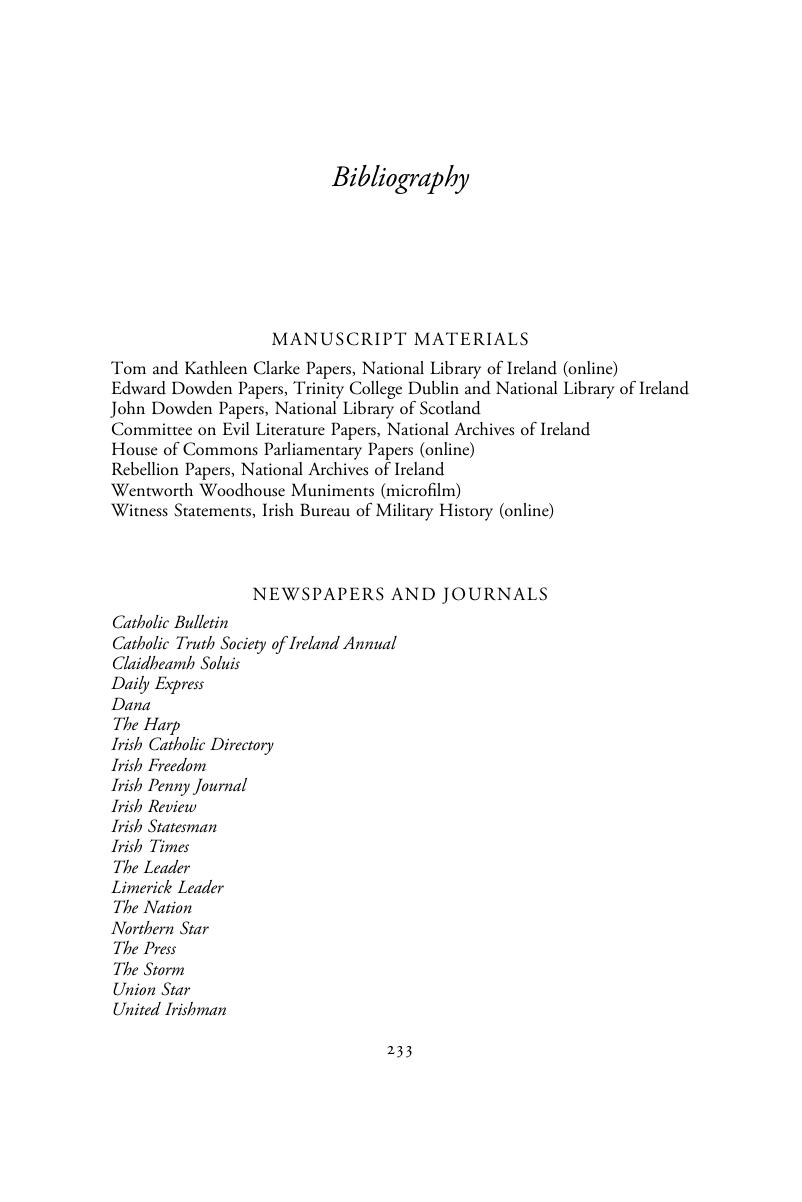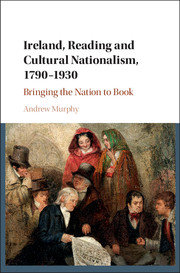Book contents
- Ireland, Reading and Cultural Nationalism, 1790–1930
- Ireland, Reading and Cultural Nationalism, 1790–1930
- Copyright page
- Dedication
- Contents
- Illustrations
- Acknowledgements
- Abbreviations
- Introduction
- Chapter 1 Textual Nationalism and Oral Culture
- Chapter 2 Education and the Rise of Literacy
- Chapter 3 W. B. Yeats and the Irish Reader
- Chapter 4 Contending Textualities
- Chapter 5 Censorship
- Afterword: Joycean Transformations
- Appendix: W. B. Yeats’ Irish Canon
- Notes
- Bibliography
- Index
- References
Bibliography
Published online by Cambridge University Press: 06 October 2017
- Ireland, Reading and Cultural Nationalism, 1790–1930
- Ireland, Reading and Cultural Nationalism, 1790–1930
- Copyright page
- Dedication
- Contents
- Illustrations
- Acknowledgements
- Abbreviations
- Introduction
- Chapter 1 Textual Nationalism and Oral Culture
- Chapter 2 Education and the Rise of Literacy
- Chapter 3 W. B. Yeats and the Irish Reader
- Chapter 4 Contending Textualities
- Chapter 5 Censorship
- Afterword: Joycean Transformations
- Appendix: W. B. Yeats’ Irish Canon
- Notes
- Bibliography
- Index
- References
Summary

- Type
- Chapter
- Information
- Ireland, Reading and Cultural Nationalism, 1790–1930Bringing the Nation to Book, pp. 186 - 232Publisher: Cambridge University PressPrint publication year: 2017



